
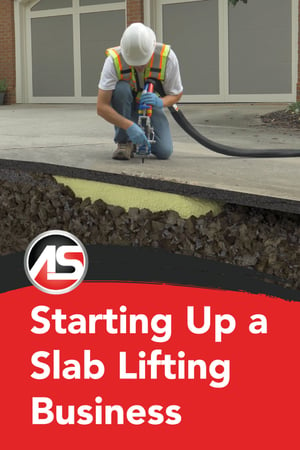 In this post, I provide an overview of a series of articles I wrote in 2018 on the basics of starting up a slab lifting business.
In this post, I provide an overview of a series of articles I wrote in 2018 on the basics of starting up a slab lifting business.
Subjects Covered in This Series
In this blog post series, we address some of the key points and considerations that slab-lifting startups frequently face. With so many years of market experience, we are uniquely positioned and qualified to offer this guidance. Because we are passionate about what we do, we are motivated to be part of your success story! Some of the topics we will cover include:
- Key Considerations
- Identifying your target market
- Selling to your potential customers
- Marketing your business
- Essential gear & accessories for starting your business
So You’re Thinking About Starting a Slab Lifting Company: Key Considerations
Slab lifting is an economical alternative to complete concrete replacement, be it a simple sidewalk repair or providing a cost-effective remedy for an entire building foundation.
If someone asked you to drive to Seattle, would you get in your car and take off, or would you look at a map first? A business and marketing plan is the roadmap for your slab lifting/concrete leveling business. It will help you define and stay true to your path, and it’s a tool you will need to attain startup financing.
Whether your goal is to launch a slab lifting venture that caters to home or business owners, you also will need a dependable, knowledgeable supplier who will not only sell you slab lifting pumps, guns and foams - but also serve as a trusted advisor.
Click here to read more...
Slab Lifting Market Hot Zones
Once you’re ready to make the move to start up a slab lifting business, one of your first areas of focus should be identifying and defining your service areas and your potential customer base within each sector or area. Broadly speaking, there are three viable market segments to explore for slab lifting services: Residential, Commercial, and Municipal.
Click here to read more...
Selling the Customer: Why Polyurethane Slab Lifting Is the Better Choice
The first question any engineer will ask is “Does the solution fit the needs of the application?” When it comes to structural foams used for slab lifting repair projects, you can confidently answer “yes.” But if you want to guide your customer to a concrete leveling repair solution, you should also be able to illustrate the pros, explain the cons, and enunciate the selling points.
Click here to read more...
Marketing Your Slab Lifting Business
Marketing your new slab lifting business takes time and the right approach. If your slab lifting business is a small to medium-sized operation, tools and strategies that increase your market presence and help you attract leads are extremely important.
Click here to read more...
Essential Gear for Starting Your Next Generation Slab Lifting Business
Slab lifting with polymers is rapidly replacing old technologies because it’s fast, strong, doesn’t shrink, and has a low impact on the environment. So it’s no surprise that we get a lot of inquiries from contractors interested in adding this service, in addition to individuals wanting to create a startup slab lifting business. So what exactly are we talking about in terms of the essential gear?
A slab lifting rig is a rolling business unto itself. It is a self-contained, turnkey, mobile unit that has all of the equipment necessary to perform the work. There are a variety of configurations but all of these setups will contain the following: Trailer or Box Truck, Power Source, Compressed Air System, Fluid Transfer System, Proportioner Pump, Heated Hoses, and Impingement Gun. Let’s look at these in more detail.
Click here to read more...



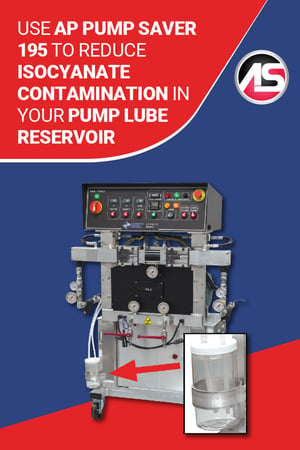 As mentioned in
As mentioned in 

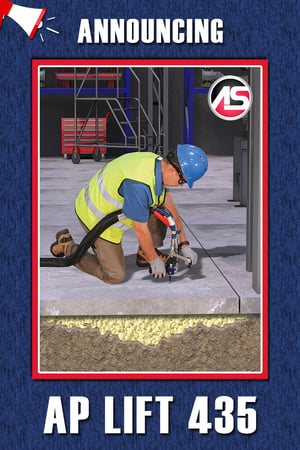 A New 3.5 lb Concrete Leveling Foam
A New 3.5 lb Concrete Leveling Foam
 Editor's Note: An earlier version of this article was published under the title Develop Your Competitive Edge.
Editor's Note: An earlier version of this article was published under the title Develop Your Competitive Edge. 
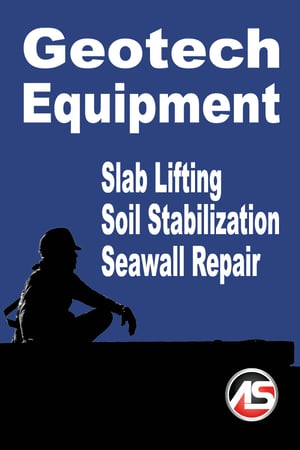

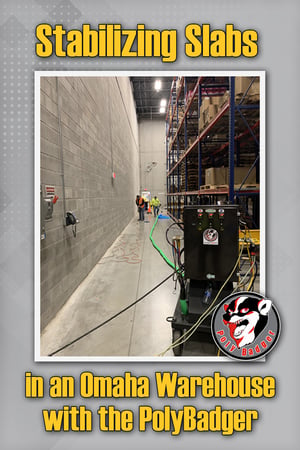 Not too long ago, I visited my customer Melvin Sudbeck’s company, Sudbeck Construction, on a warehouse job. They were called in by the property owner because he had noticed four slabs that were shifting up and scraping against a wall when forklifts crossed them. The crew drilled a couple of preliminary holes in the slabs for diagnostic purposes and discovered voids underneath ranging from 12-18 inches in depth.
Not too long ago, I visited my customer Melvin Sudbeck’s company, Sudbeck Construction, on a warehouse job. They were called in by the property owner because he had noticed four slabs that were shifting up and scraping against a wall when forklifts crossed them. The crew drilled a couple of preliminary holes in the slabs for diagnostic purposes and discovered voids underneath ranging from 12-18 inches in depth.

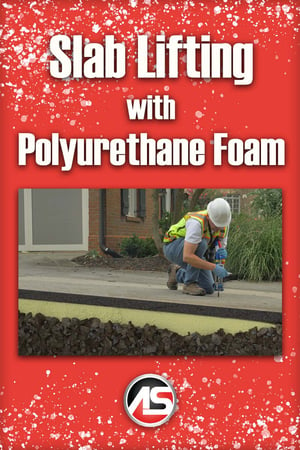 Precision Concrete Leveling
Precision Concrete Leveling

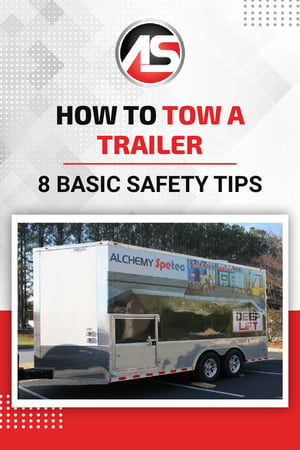 Whether it’s your first time or you’re a seasoned veteran, this guide can serve as a simple checklist to keep your equipment and 16-20 foot trailer safe as you travel to your next project.
Whether it’s your first time or you’re a seasoned veteran, this guide can serve as a simple checklist to keep your equipment and 16-20 foot trailer safe as you travel to your next project.
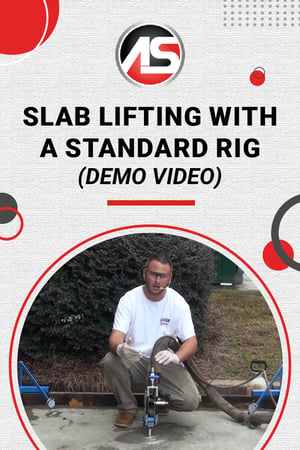
.jpg?width=1400&name=1.%20Banner%20-%20Lifting%20with%20the%20PolyBadger%20(Demo%20Video).jpg)
.jpg?width=300&name=2.%20Body%20-%20Lifting%20with%20the%20PolyBadger%20(Demo%20Video).jpg) The Alchemy-Spetec PolyBadger lifting system is tough and compact. This system is an affordable entry-level option for new contractors, as well as an extremely portable addition to the experienced contractor’s arsenal. The PolyBadger is a lot less expensive than your standard 20 foot trailer rig. The set up is simple and requires minimal equipment. The entire system can easily fit in the back of a pickup truck!
The Alchemy-Spetec PolyBadger lifting system is tough and compact. This system is an affordable entry-level option for new contractors, as well as an extremely portable addition to the experienced contractor’s arsenal. The PolyBadger is a lot less expensive than your standard 20 foot trailer rig. The set up is simple and requires minimal equipment. The entire system can easily fit in the back of a pickup truck!